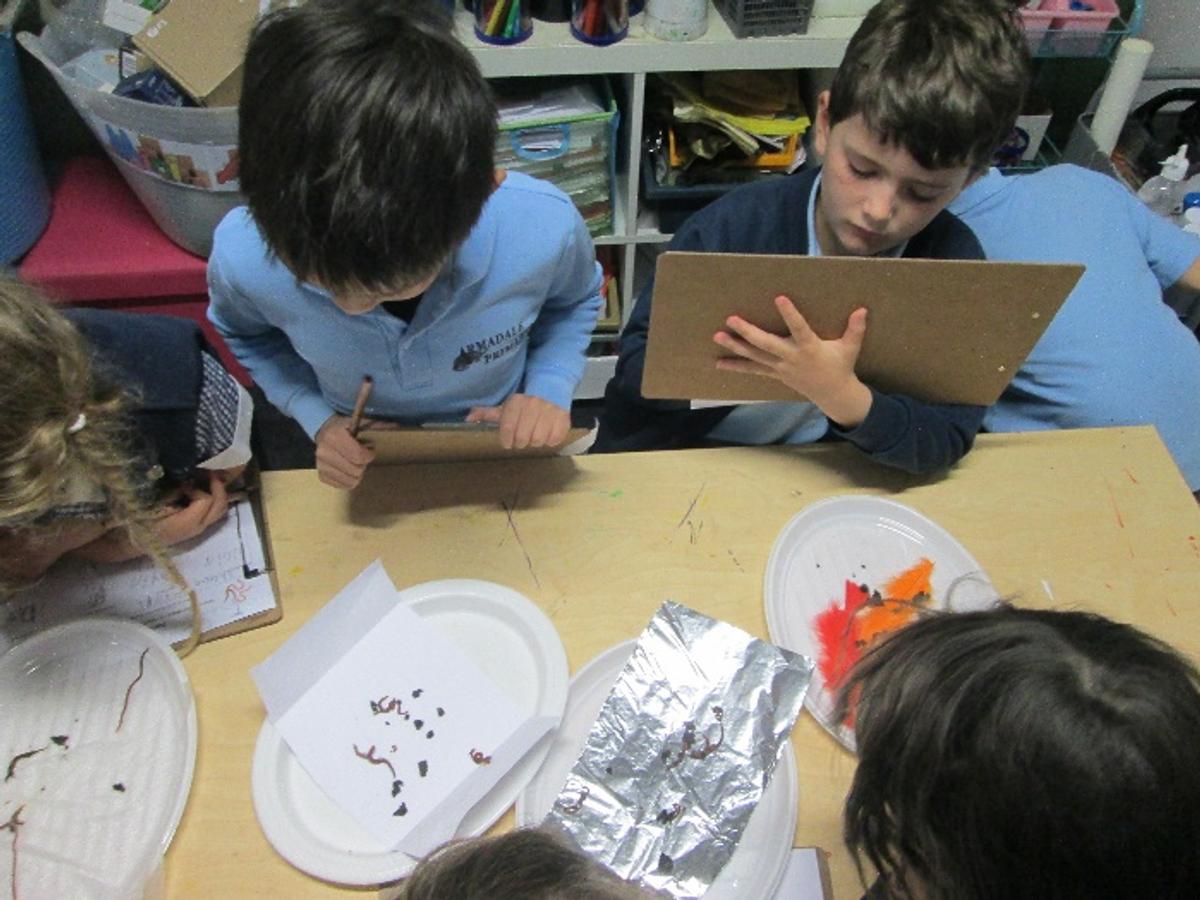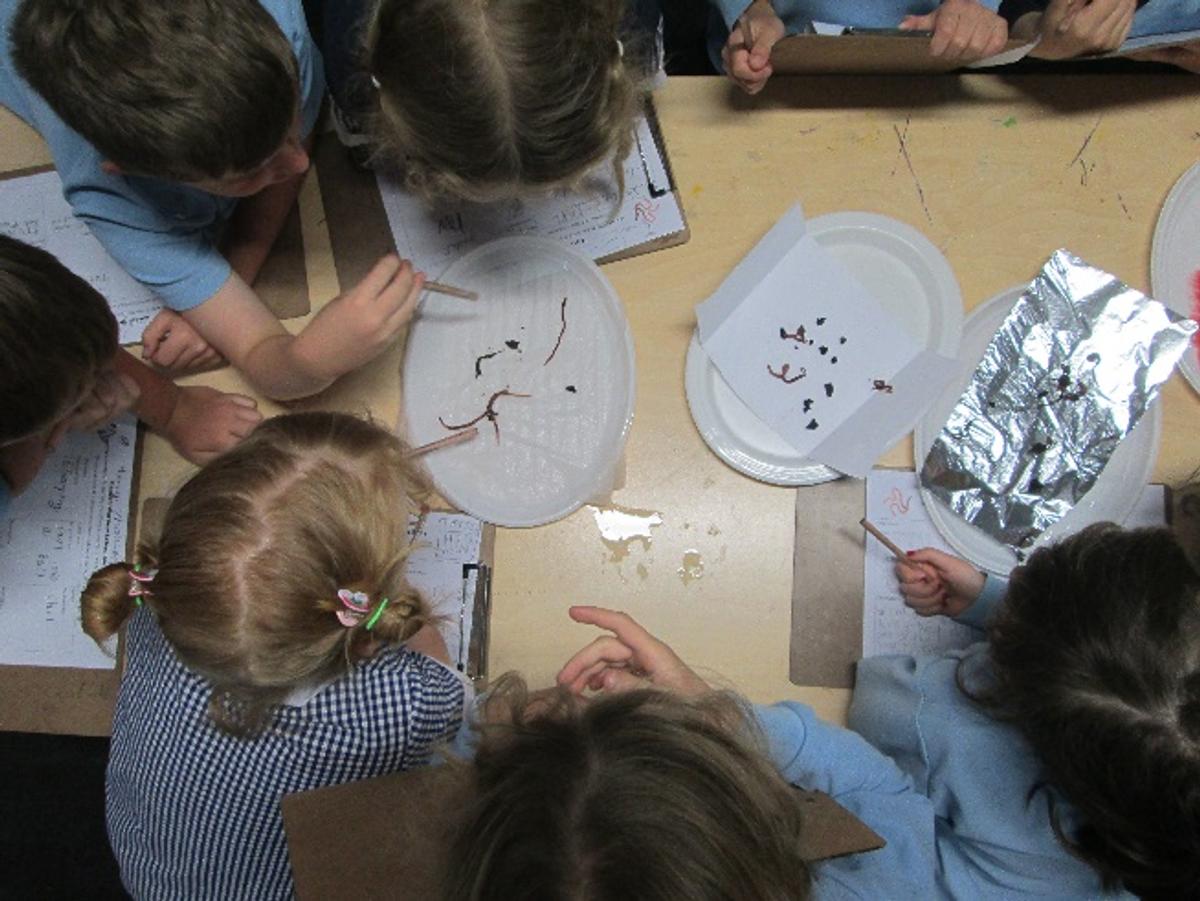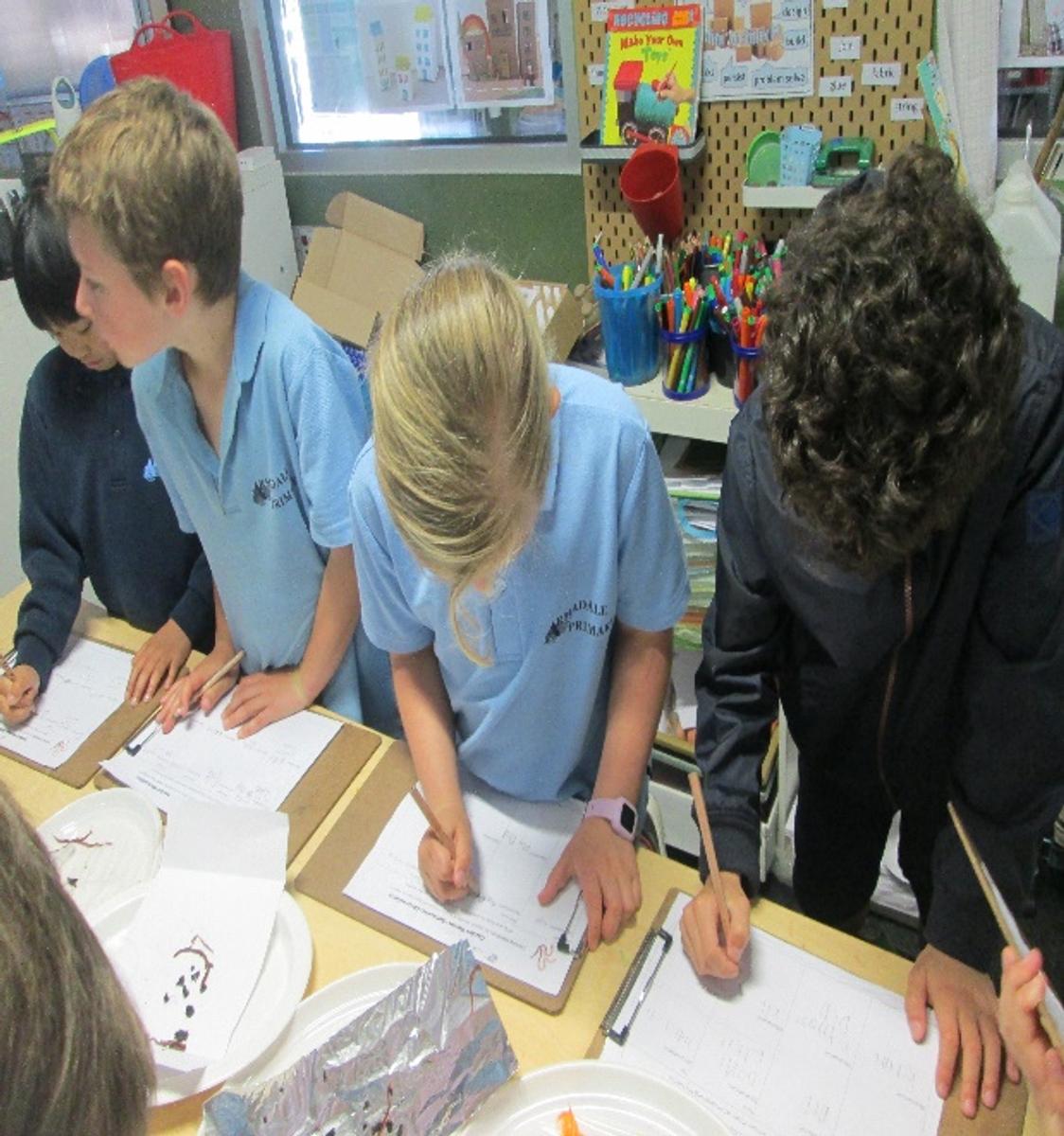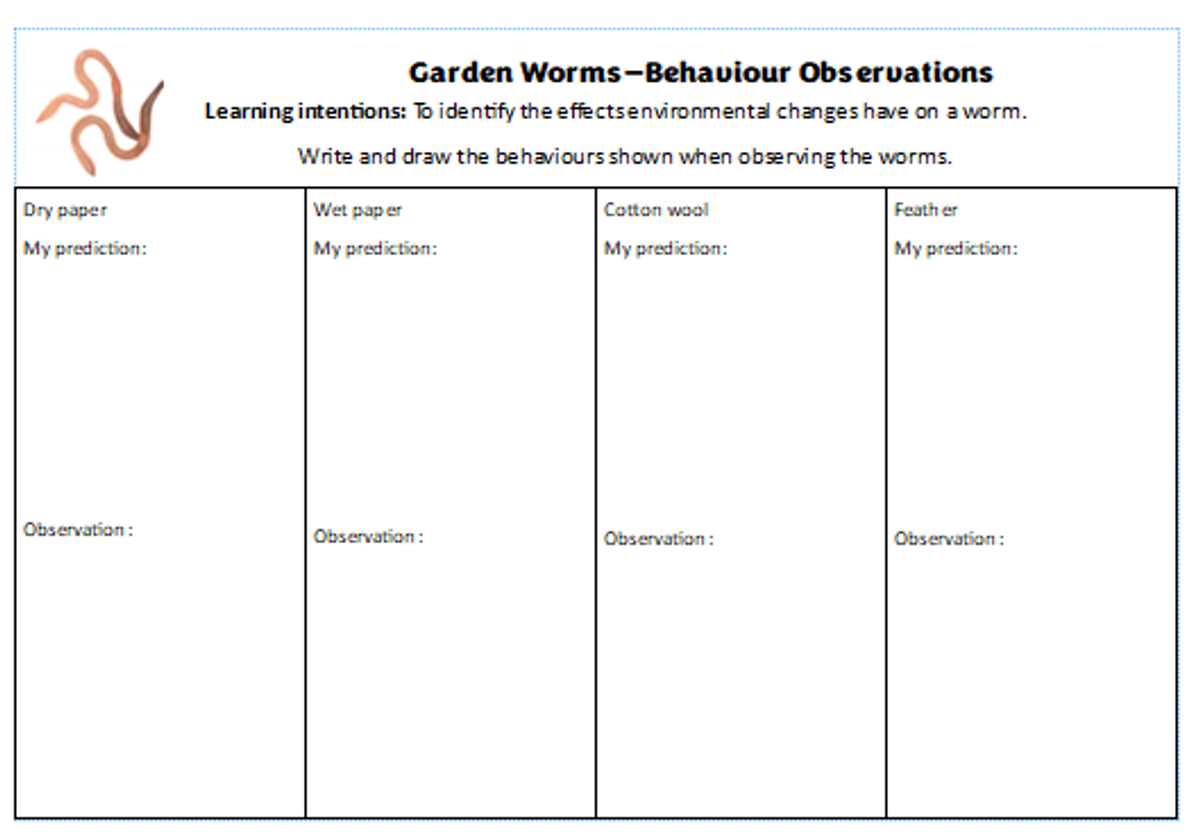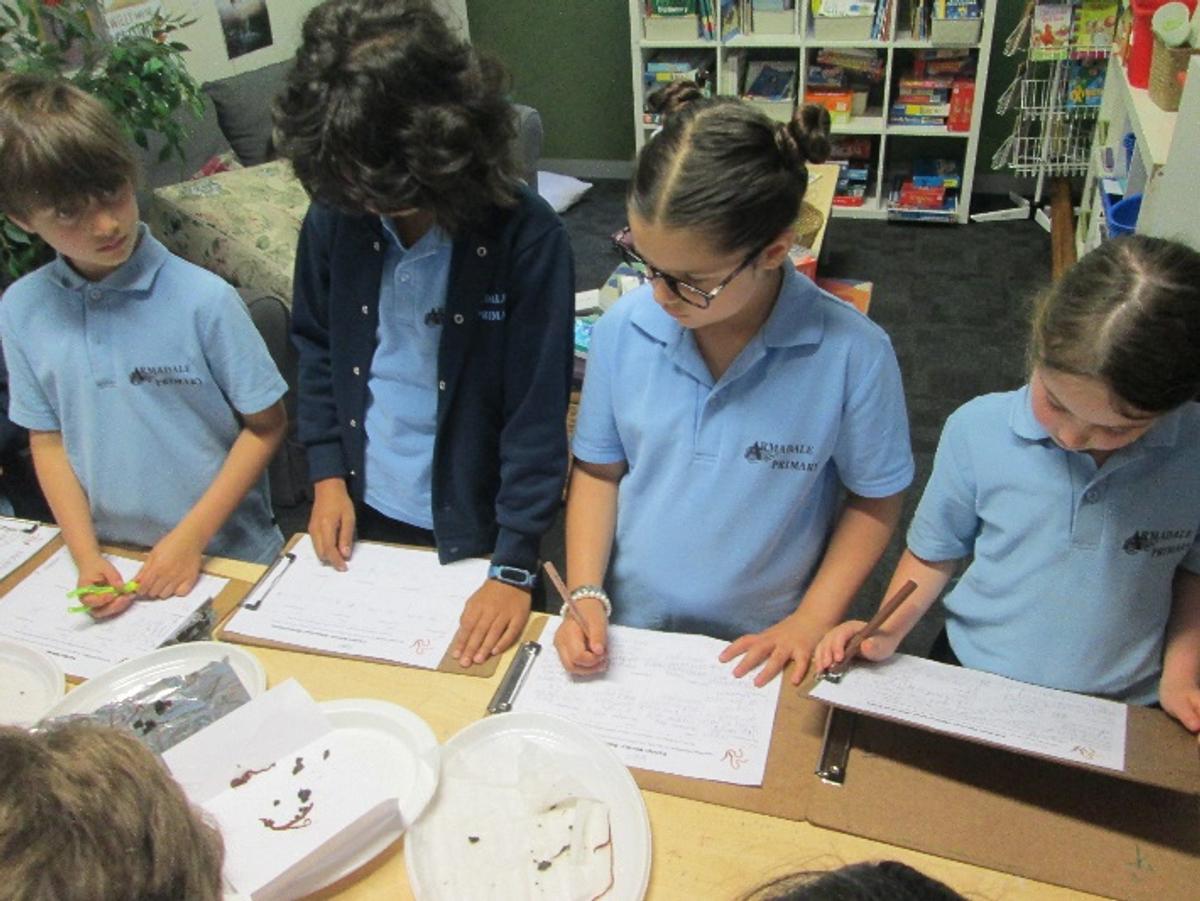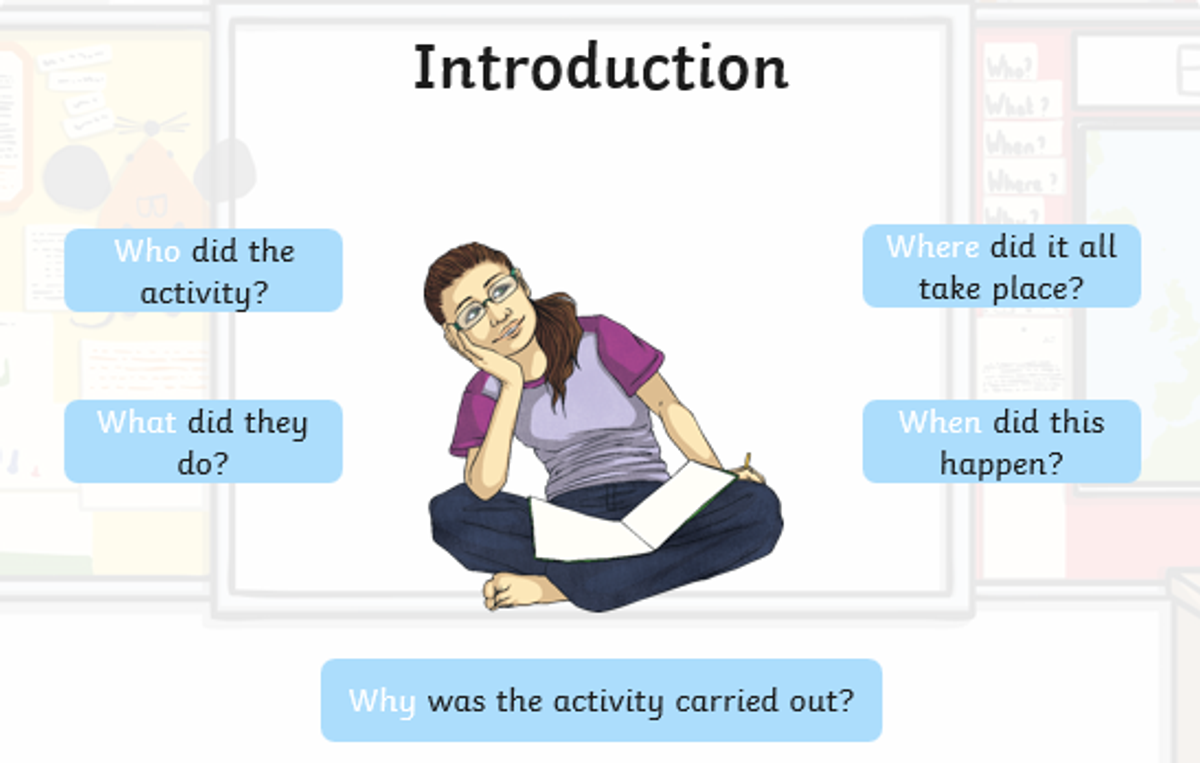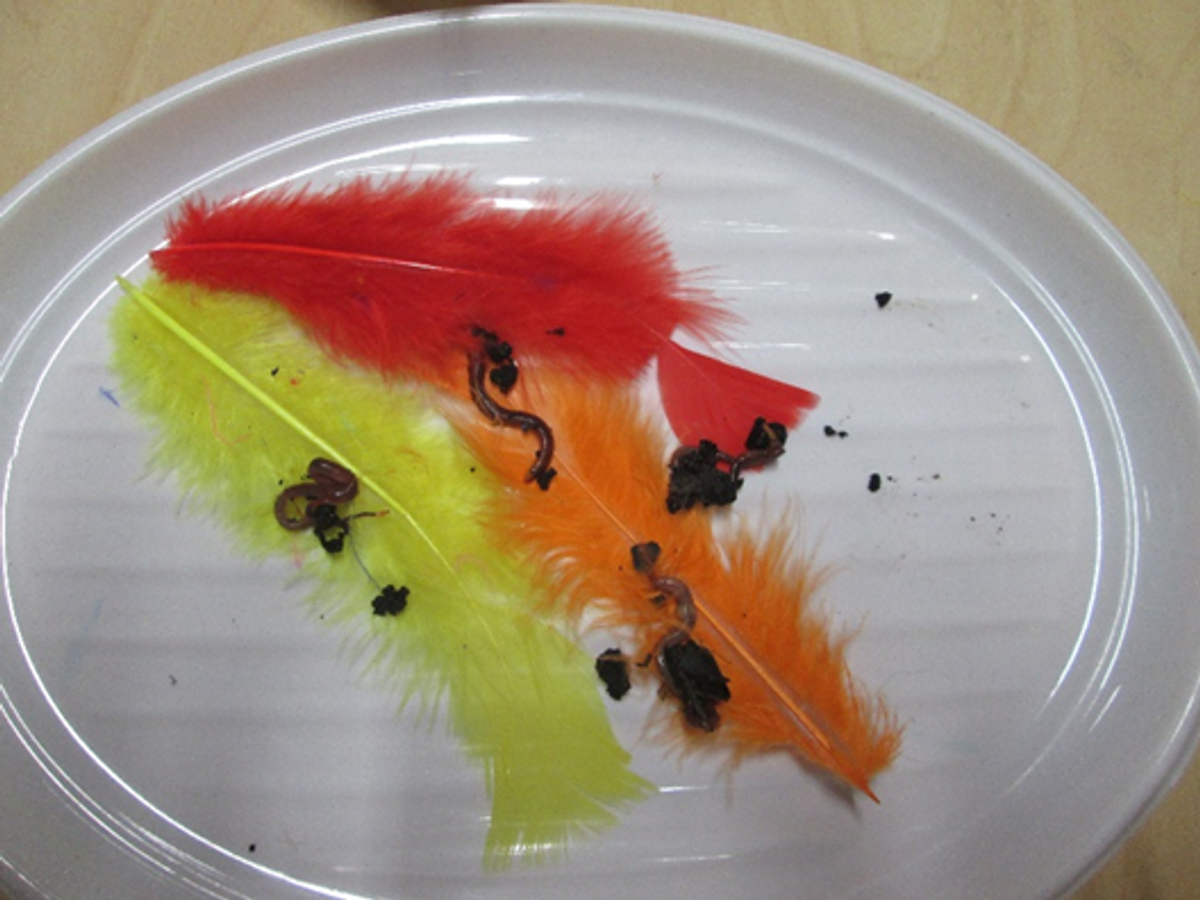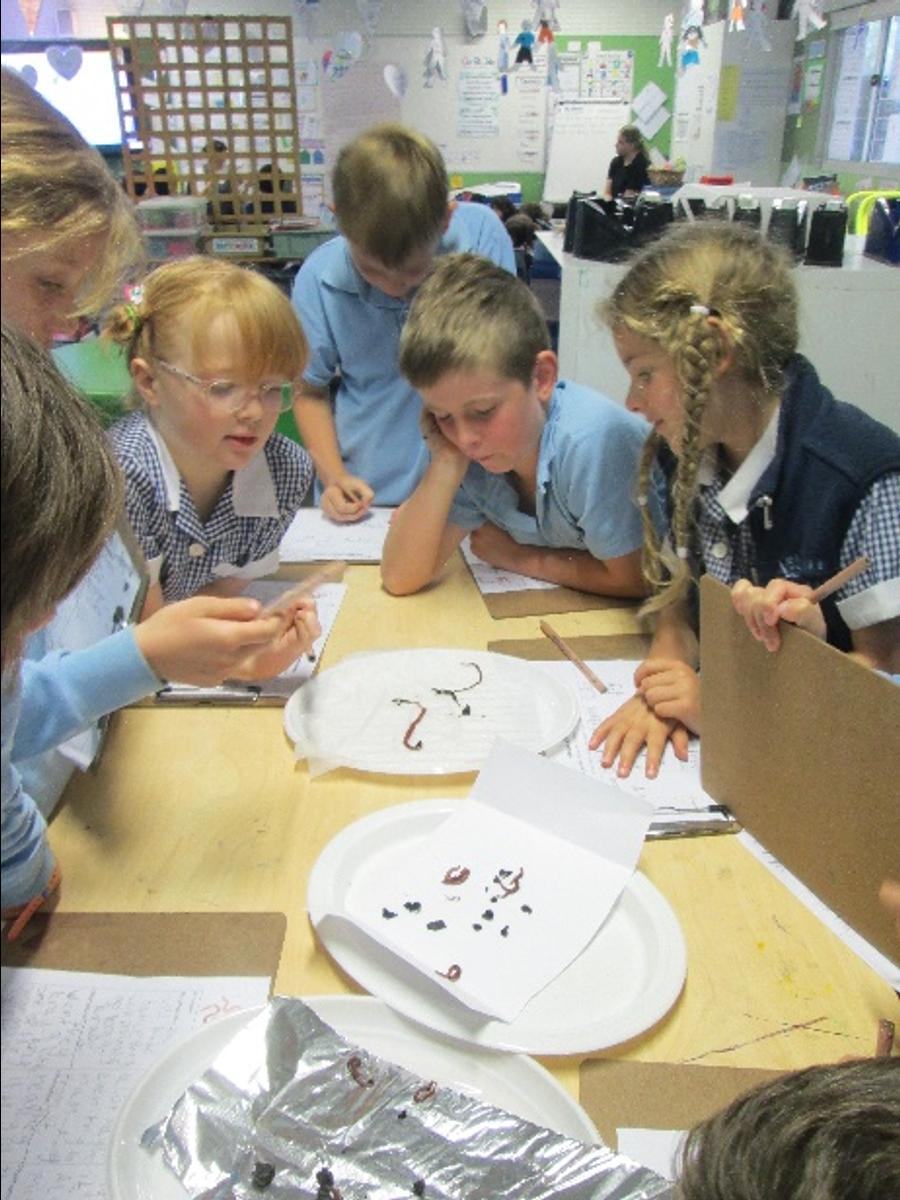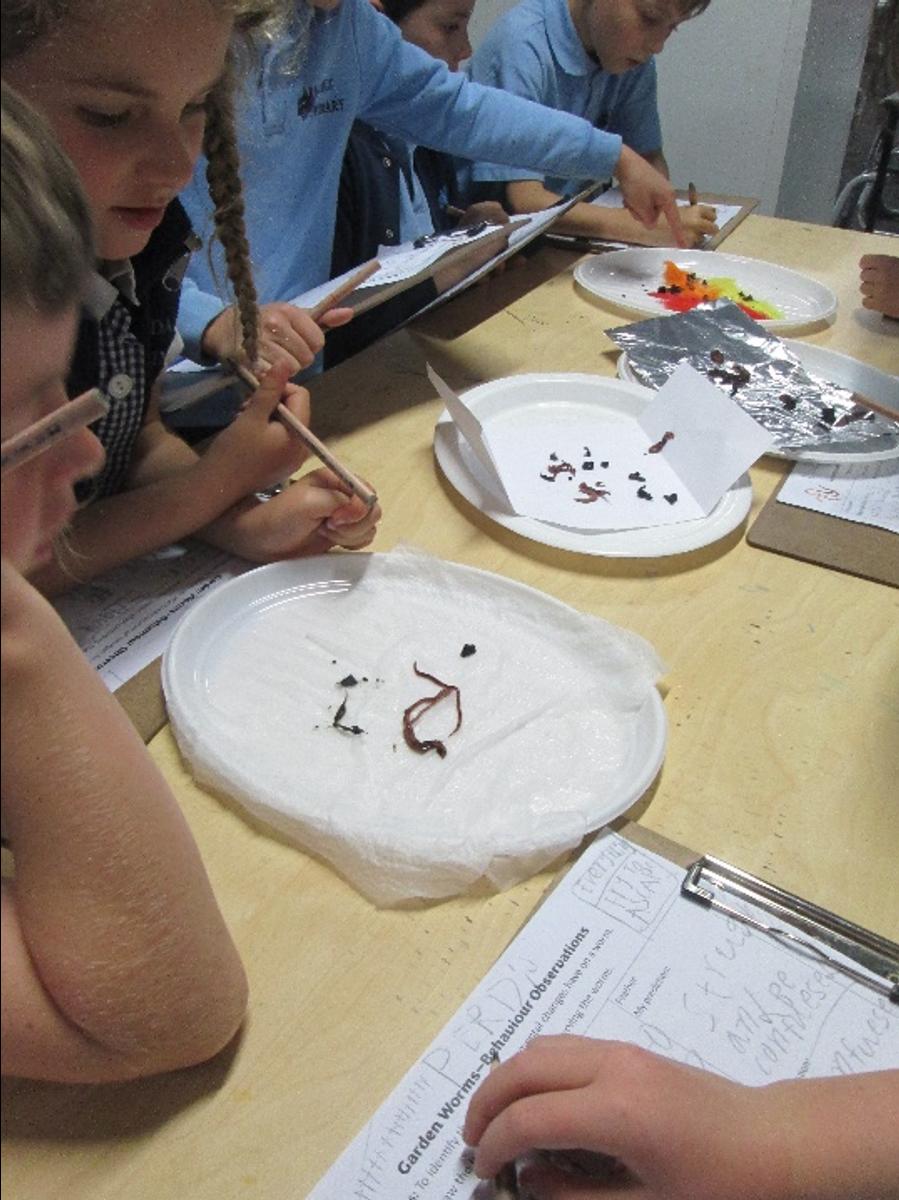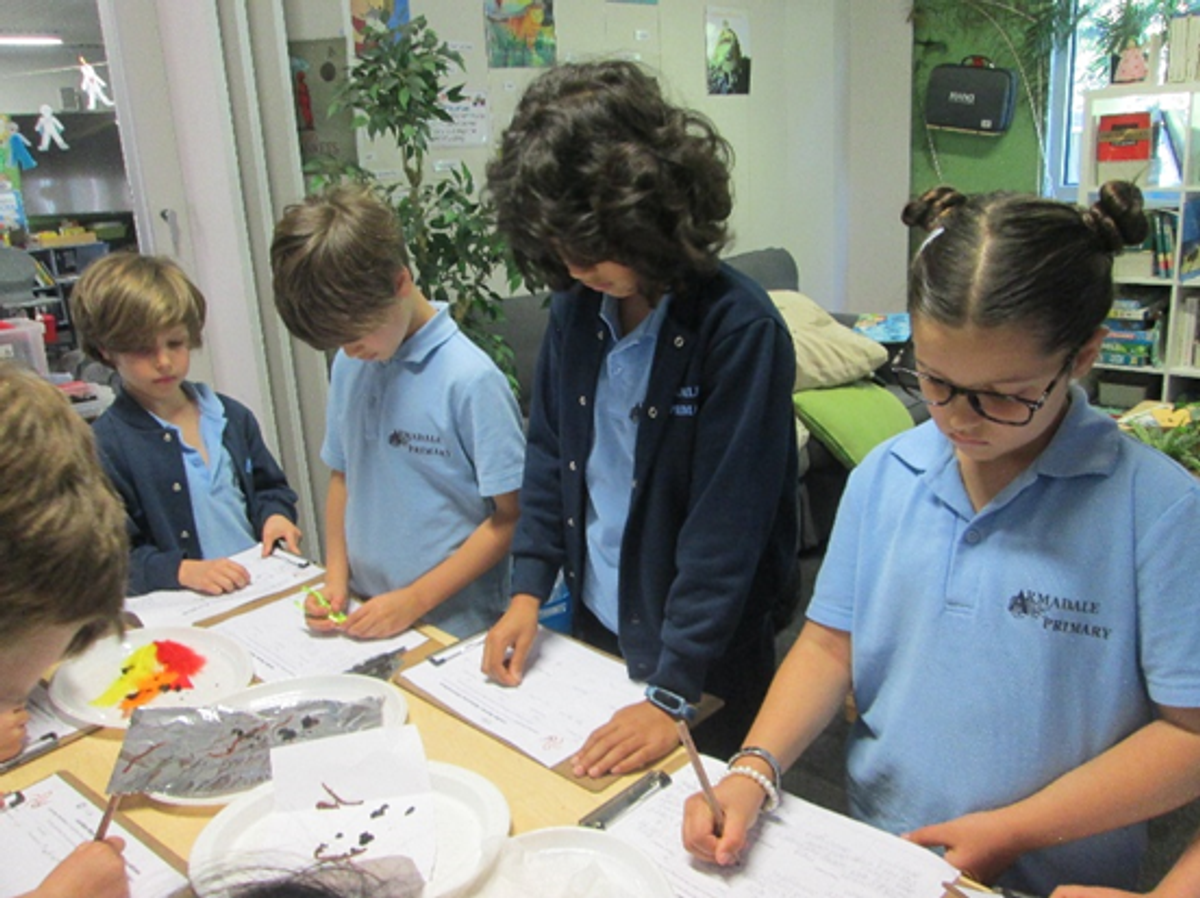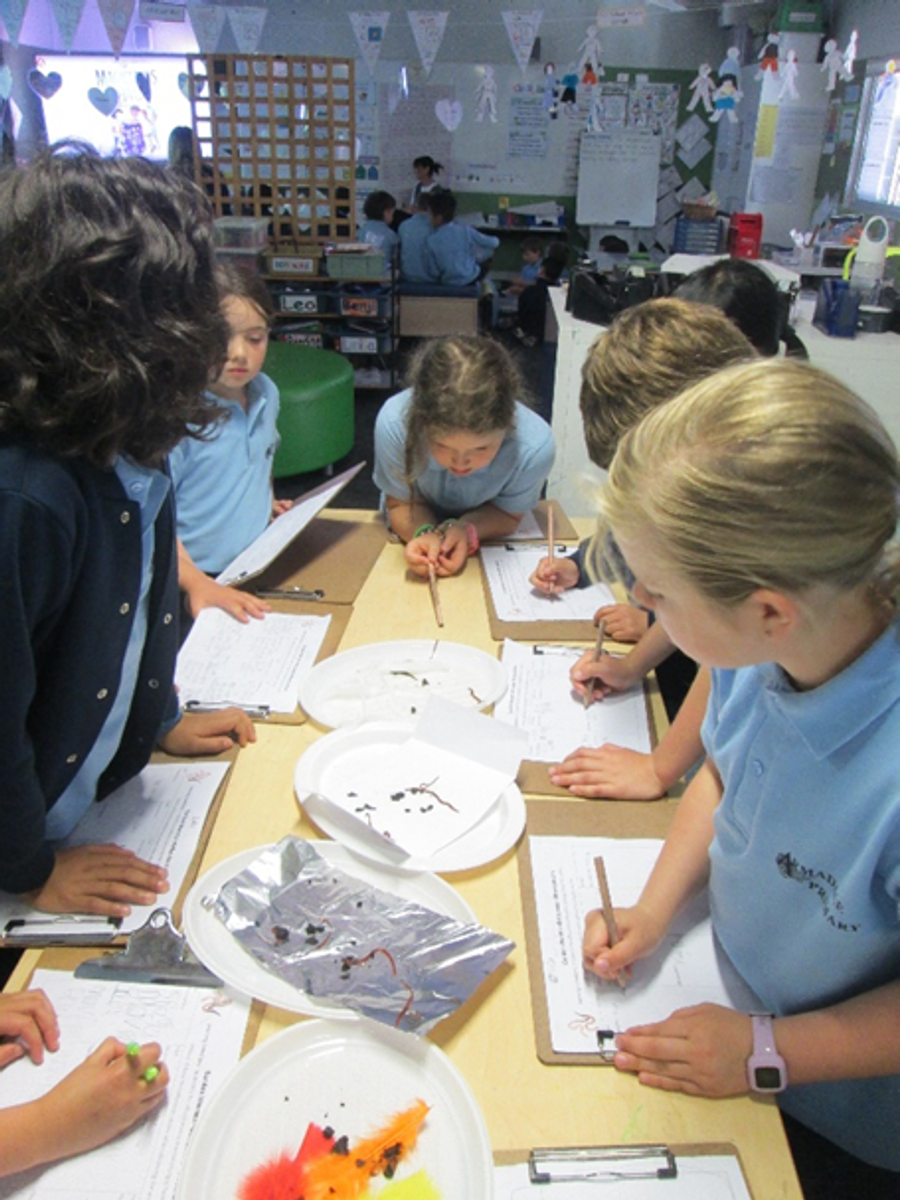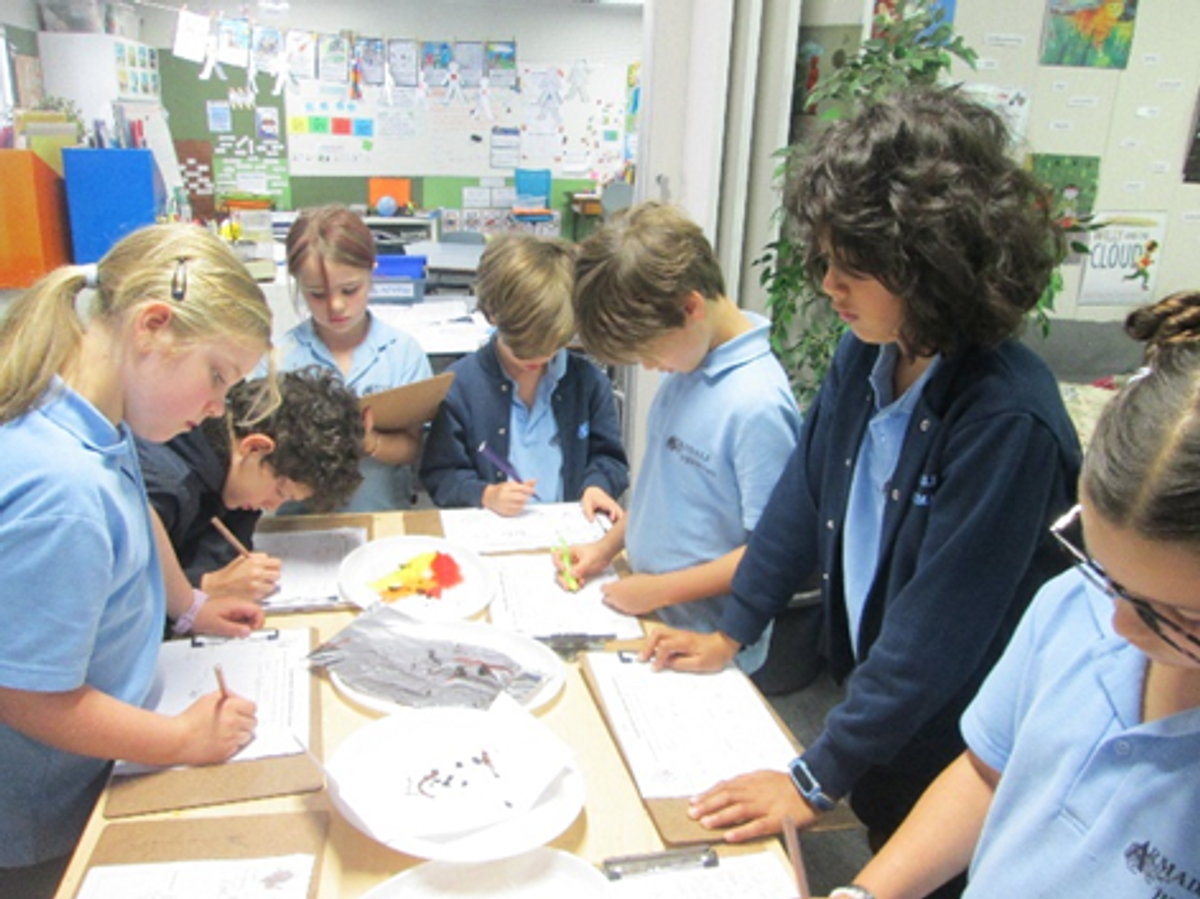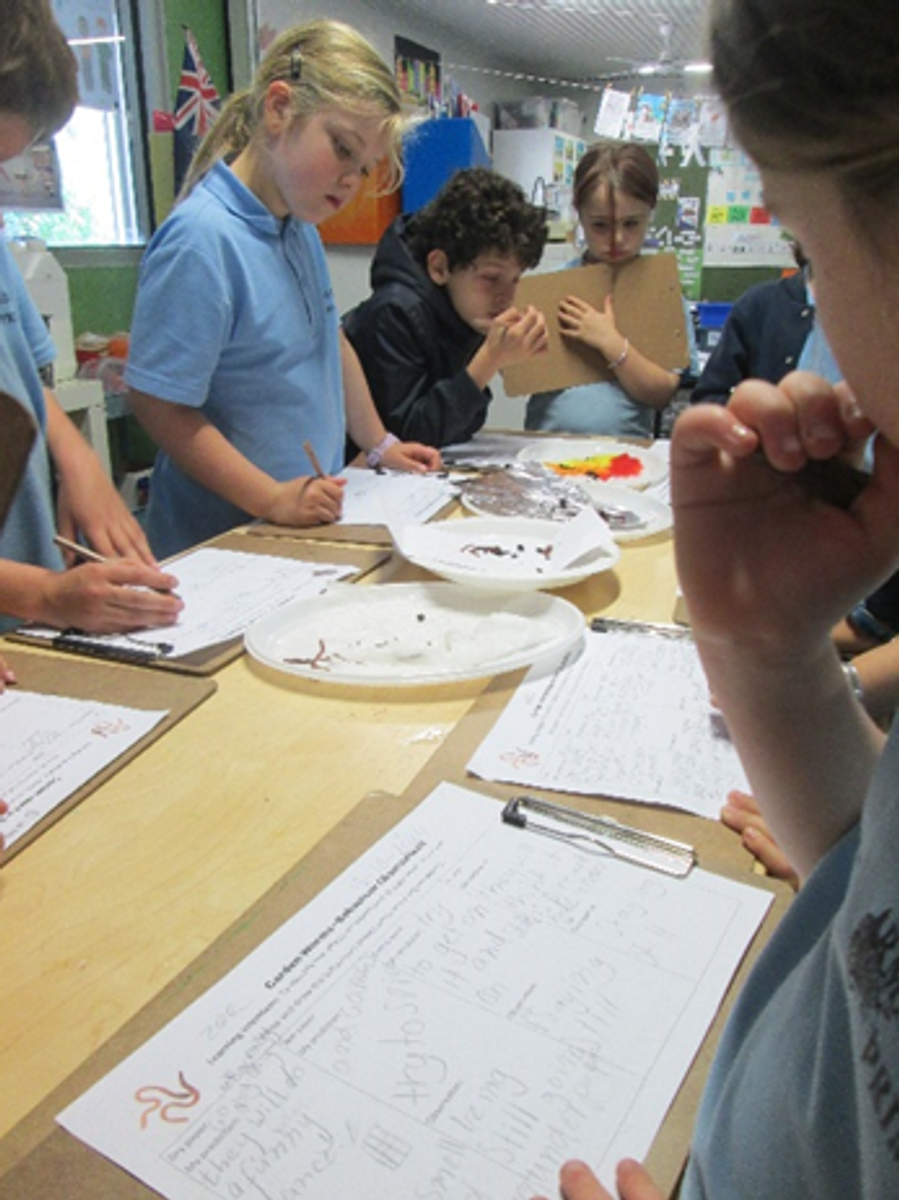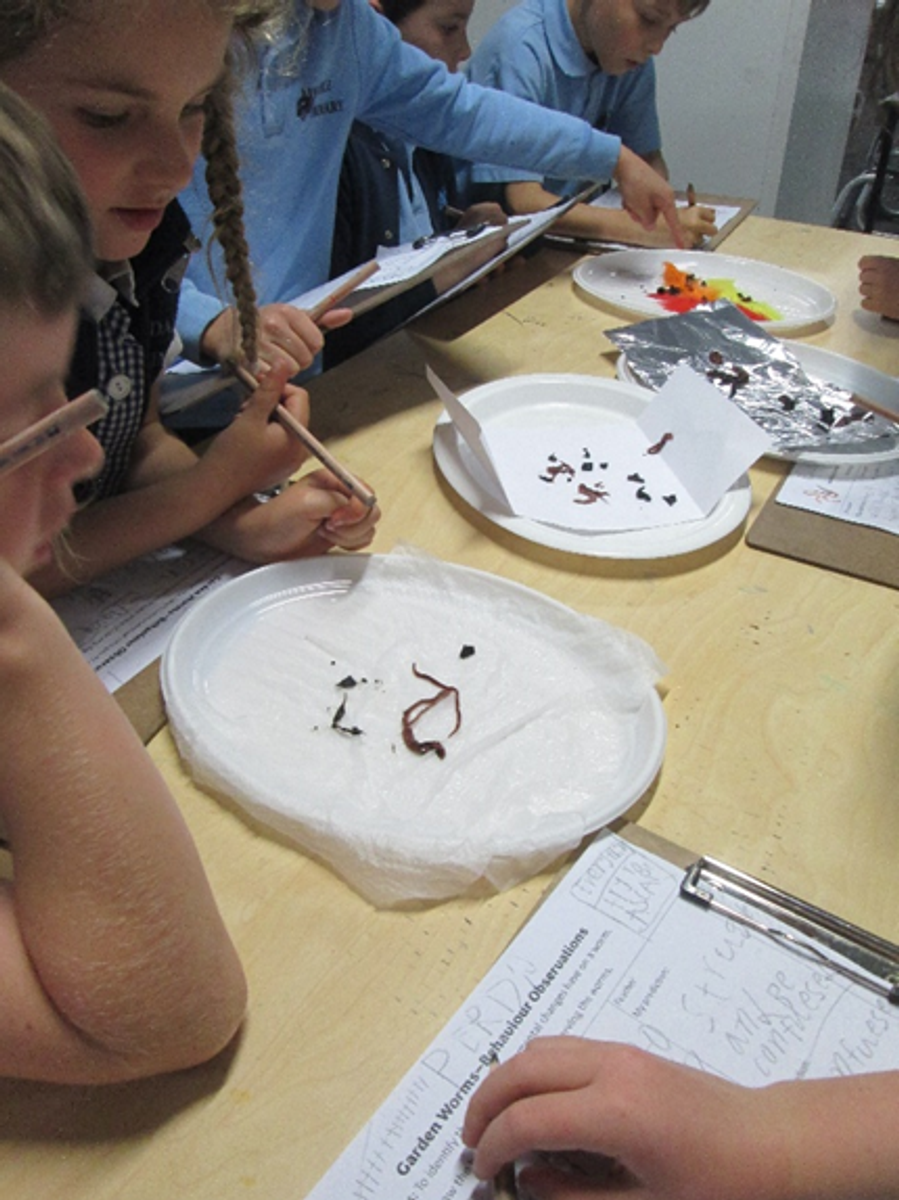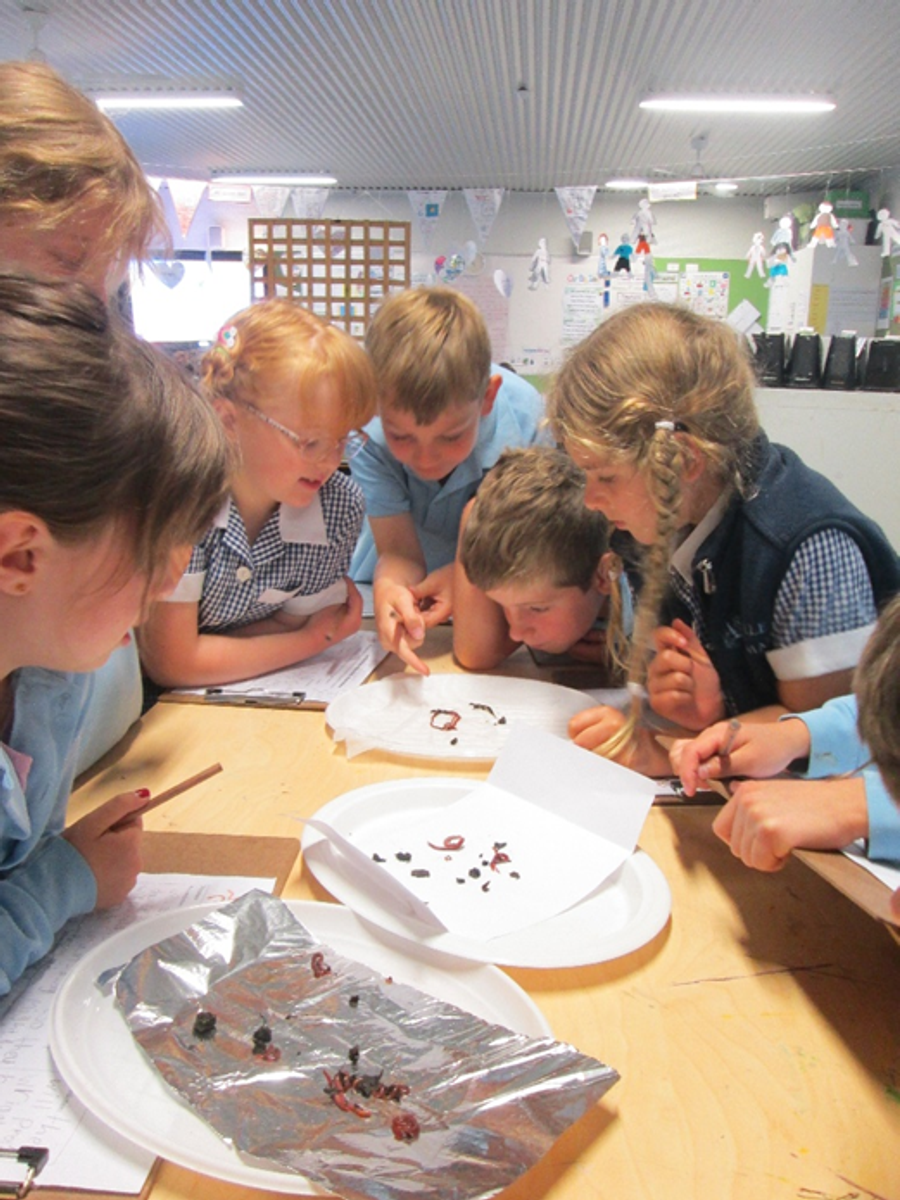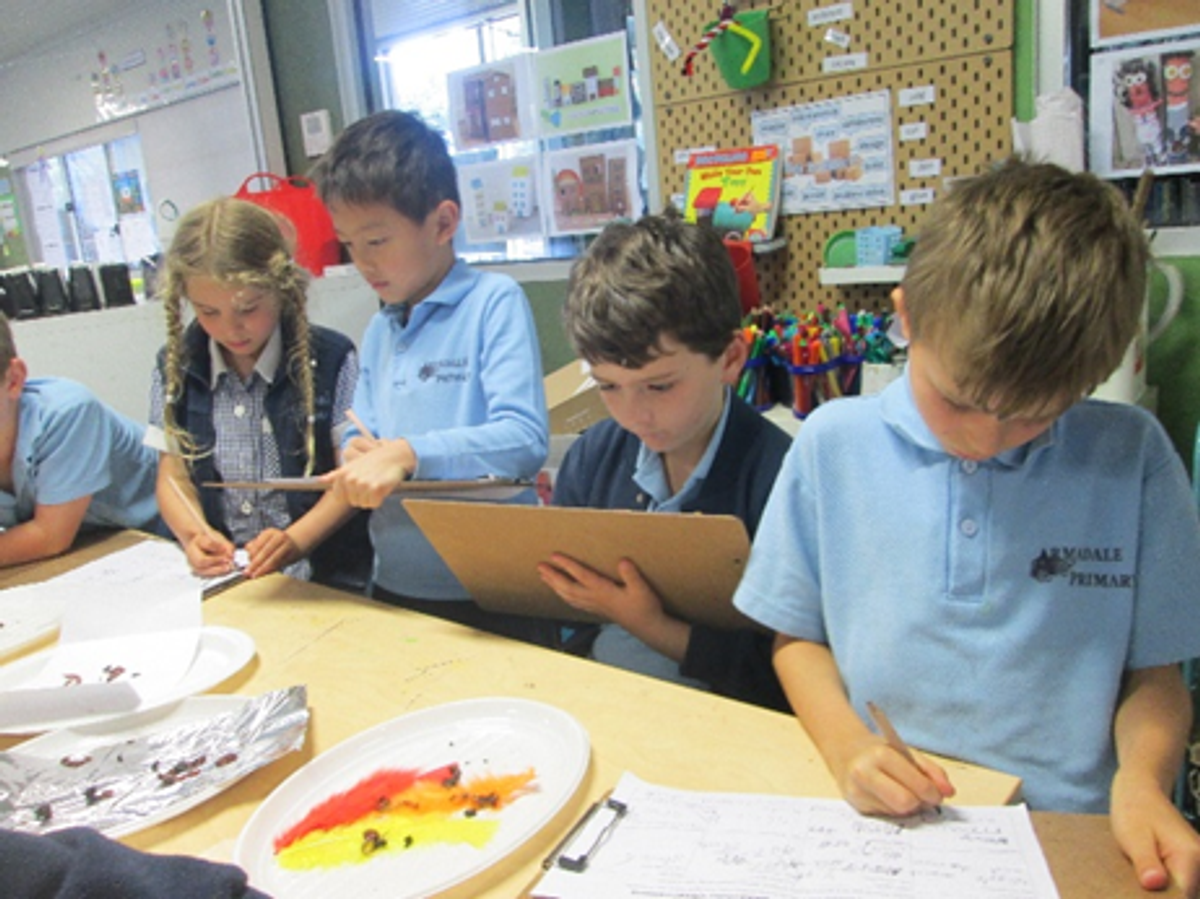Year 2 Bulletin
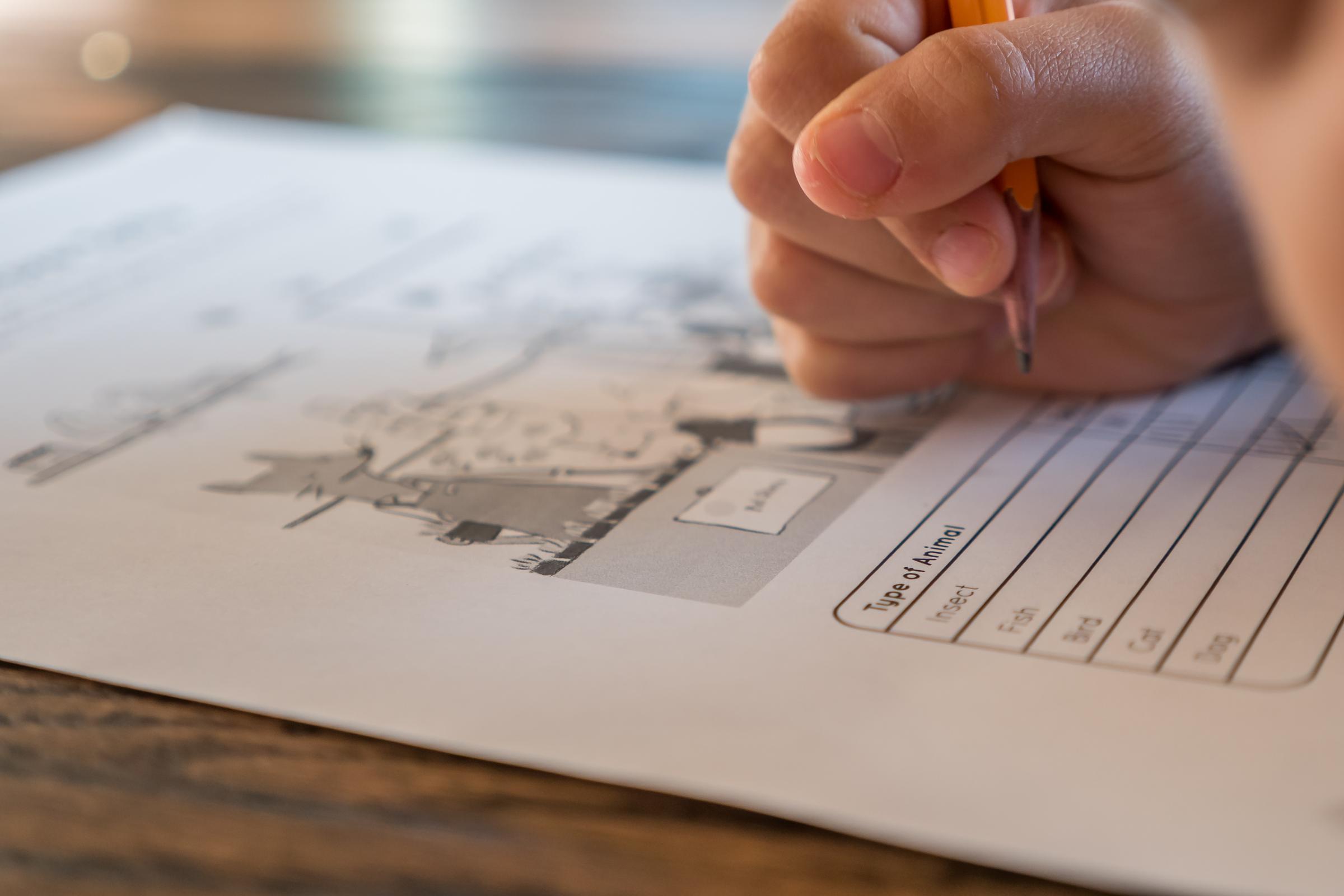
Writing a personal Recount based on a shared experience
This activity was spread over two lessons. The first part, was a science lesson, where the students observed and recorded the changes to a worm’s behaviour, depending upon its environment. The second part, was a Recount writing lesson, based on the shared experience of worm observations.
PART 1
Science
Science Understanding: Biological Sciences
Science Skills: Science Inquiry Skills
Learning Intention:
To identify the effects environmental changes, have on a worm.
Learning experience overview:
In Level 2, the curriculum focus is on awareness of self and the local world. Students observe changes that can be large or small and happen quickly or slowly. They explore the properties of familiar objects and phenomena, identifying similarities and differences. Students observe patterns of growth and change in the world around them, including weather and living things.
They learn that seeking answers to questions and making observations is a core part of science, and that they need to use their senses to gather different types of information. They infer simple cause and effect relationships from their observations and experiences, and link events and phenomena with observable effects.
By the end of Level 2, students describe examples of how people use science in their daily lives. They are able to:
- identify and describe examples of the external features and basic needs of living things
- describe how different places meet the needs of living things
- describe the properties, behaviour, uses and the effects of interacting with familiar materials and objects
- identify and describe the changes to objects, materials, resources, living things and things in their local environment
- suggest how the environment affects them and other living things
Students pose and respond to questions about familiar objects and events and predict outcomes of investigations. They use their senses to explore the world around them and record informal measurements to make and compare observations. They record, sort and represent their observations and communicate their ideas to others.
Our experiment began with extraction of earthworms, contained in leaf litter and decaying organic matter. The worms were placed onto a plastic plate, for all to observe. We discussed what we already know about worms, and what the usual habitat for earthworms might be, and how we could change those circumstances, for a short period of time, in order to see what difference they made. The possible behaviours in response to the changes in environment, were noted as our predictions.
Various surfaces were created: dry paper, wet paper, cotton wool, feathers, foil, sugar, flour and ice.
Using our Garden Worms Behaviour Observation Sheet, as below, predictions were made regarding the possible reactions.
With each new surface, a small number of worms were briefly deposited.
The actual reaction was then observed and drawn and/or written down.
PART 2
English
Literacy: Creating Texts
Writing Traits: Organisation, Voice
Learning Intention:
To participate in a shared experience as a prompt for recount writing.
Learning experience Overview:
Each class worked individually on their recount writing.
We revised the steps involved in writing a recount.
- The introduction or opening paragraph must contain the answers to
Who? What? When? Where? and Why?
- Events need to be in the time (chronological) order in which they occurred
- Sequential words are used at the beginning of each paragraph where the action has changed –
Firstly, Then, After that, Next, Meanwhile, Finally, Eventually - Paragraphs are used when an action changes
- Precise vocabulary is used
- What actually happened during the activity is written in detail
- The conclusion or closing paragraph tells what the highlights was, or what was learnt from the experience.
To resume the learning at home from this experience
- Continue to encourage your child/ren to take an interest in the natural world.
- Respond to and pose questions, and make predictions about familiar objects and events
- Participate in guided investigations, including making observations
using the senses, to explore and answer questions - Use informal measurements in the collection and recording of observations
- Use a range of methods, including drawings and provided tables, to sort information
- Compare observations and predictions with those of others
- Represent and communicate observations and ideas about changes in objects and events in a variety of ways
- Continue to encourage your child/ren to write for pleasure at home, and share their writing and ideas with you. They might like to keep a simple diary, or a nature journal, to jot down experiences
- Encourage your child to read more non-fiction texts. Perhaps try information books that your local library would stock.
- As you read together, bring their attention to how the writer has used different techniques. Ask them what a certain writer does in their writing, that they could do too – perhaps uses descriptive words or vivid verbs
- Read every day, to expose your children to new ideas, different styles of writing, other structures and ways of looking at the world
- When you are reading together, notice new ways with words and explicit vocabulary which is used to heighten the reader’s mental image of what is happening in the text. Encourage them to use those words and ideas in their own writing.
- Be available to help them with spelling and editing their writing.
- Type it up on the computer.
- Make it into a book form, with illustrations.
- Set aside time to read and listen to them reading what they have written
- Encourage all ideas for writing
- Most of all, have fun writing together!
Mrs Evans and Rosanna
Year 2 Team

